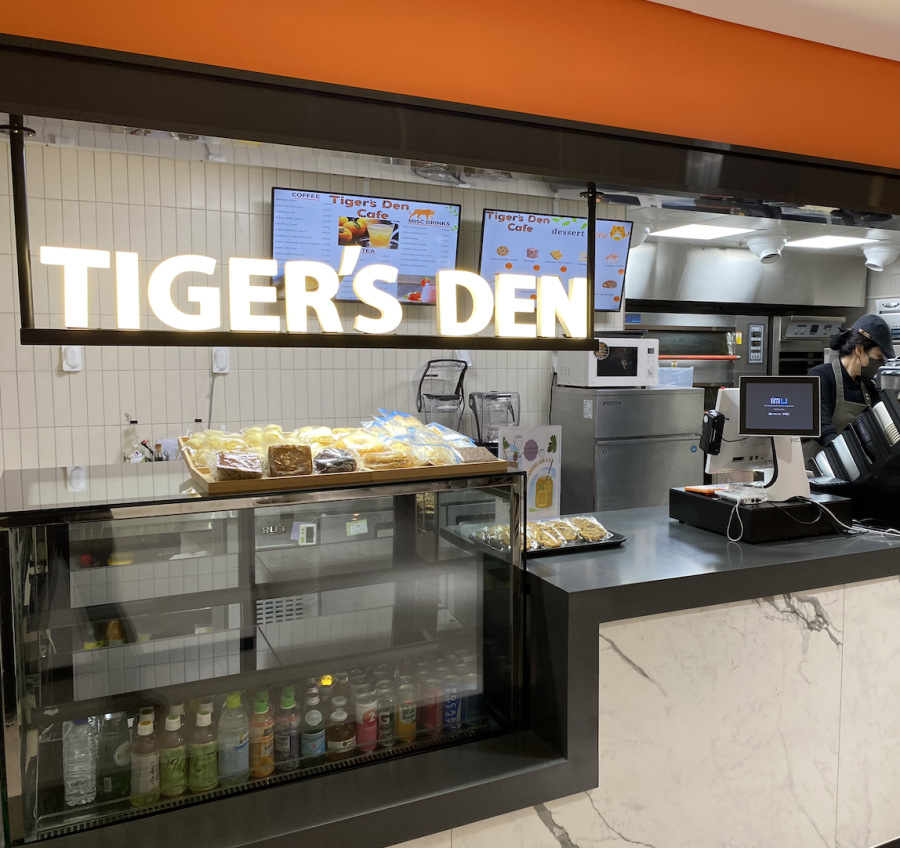Tiger’s Den cafe implements environmentally friendly stamp system
Kevin Kim is a guest writer from Writing 11
Starting from March 15, the Tiger’s Den cafe in the cafeteria is implementing a new initiative to reduce the amount of single-use plastic cups being consumed through a “stamp system.” Under the system, for every drink somebody buys using their own bottle or thermos, they will receive a stamp on a card that the cafe workers will distribute, and if they accumulate 20 stamps, they will receive 2000 KRW off of their next purchase.
JJs, the catering company running both the school cafe and the cafeteria, is taking this step in a bid to be more environmentally friendly. The idea was proposed to them by SIS students who were tackling the issue of plastic pollution in the SIS community. Now, you might be thinking: “Why would I participate in this new system? After all, it would be troublesome to bring my own bottle every time I need a drink, and plastic cups are more convenient anyways.” However, making environmentally conscious decisions is no longer a choice, and with the worsening plastic problem, everybody must make sacrifices for the sake of the planet.
Plastic pollution is a severe issue in South Korea. Each person produces approximately 70kg of plastic waste annually, which is one of the highest per capita consumption of plastic in the world. A large portion of this plastic waste is single-use and gets thrown away less than an hour after use. What’s worse is that single-use plastics such as bottles, straws, and cups can not be recycled, as the Korean government considers them bio-contaminated. Therefore, they often end up in landfills or worse yet, the environment, doing irreparable damage to the planet.
When plastic is left in the environment, it takes hundreds of years to fully degrade. During the process of degradation, plastic releases countless particles of microplastics into its surroundings. Microplastics have been found everywhere, from inside birds, fish, and plankton, to tap water, air, and even human blood. With not enough data on how toxic microplastics are to organisms, this is a worrying trend that could have massive consequences as the issue of plastic pollution worsens.
Making the terrible issue even worse, there are no convenient solutions or alternatives to plastic pollution. For example, paper straws, which fill the self-serve counters of Starbucks around the nation, seem like a great solution to plastic pollution, but in reality, they are a way of trading one environmental issue for another. The carbon footprint of paper straws is much more than that of plastic straws. Every paper straw produced requires three times as much energy and releases five times the amount of carbon dioxide compared to a plastic straw of the same size. Also, the production of paper straws requires trees to be cut down, contributing to deforestation.
Therefore, any potential solution regarding this issue of plastic pollution needs to target the issue at its root, by curbing the demand for plastic products in the first place. This is exactly what the new stamp system aims for, as it provides incentives for SIS customers to be more environmentally friendly and reduce the number of plastic cups they consume.

